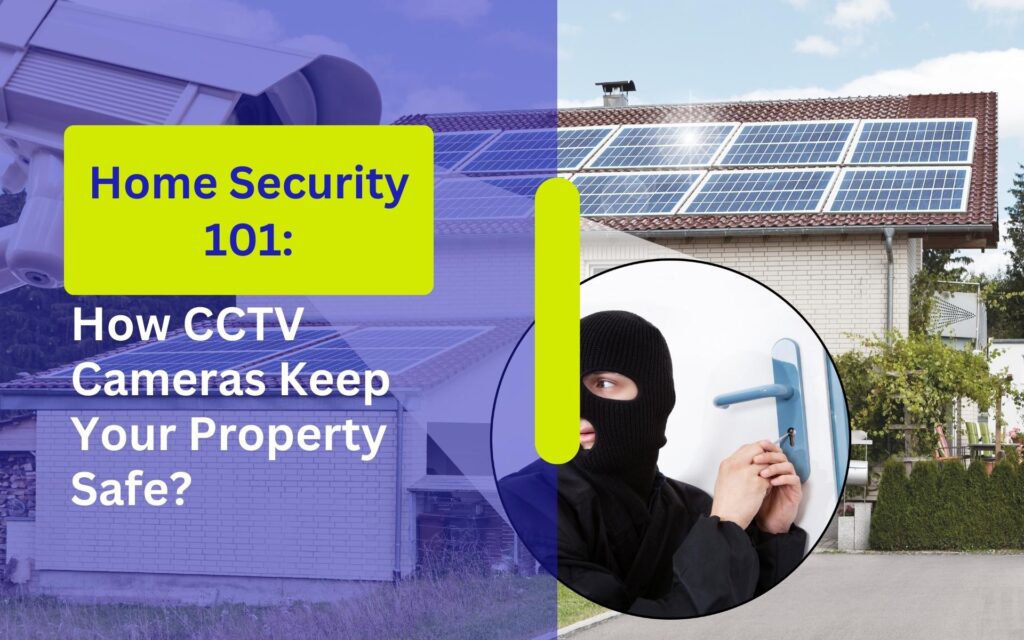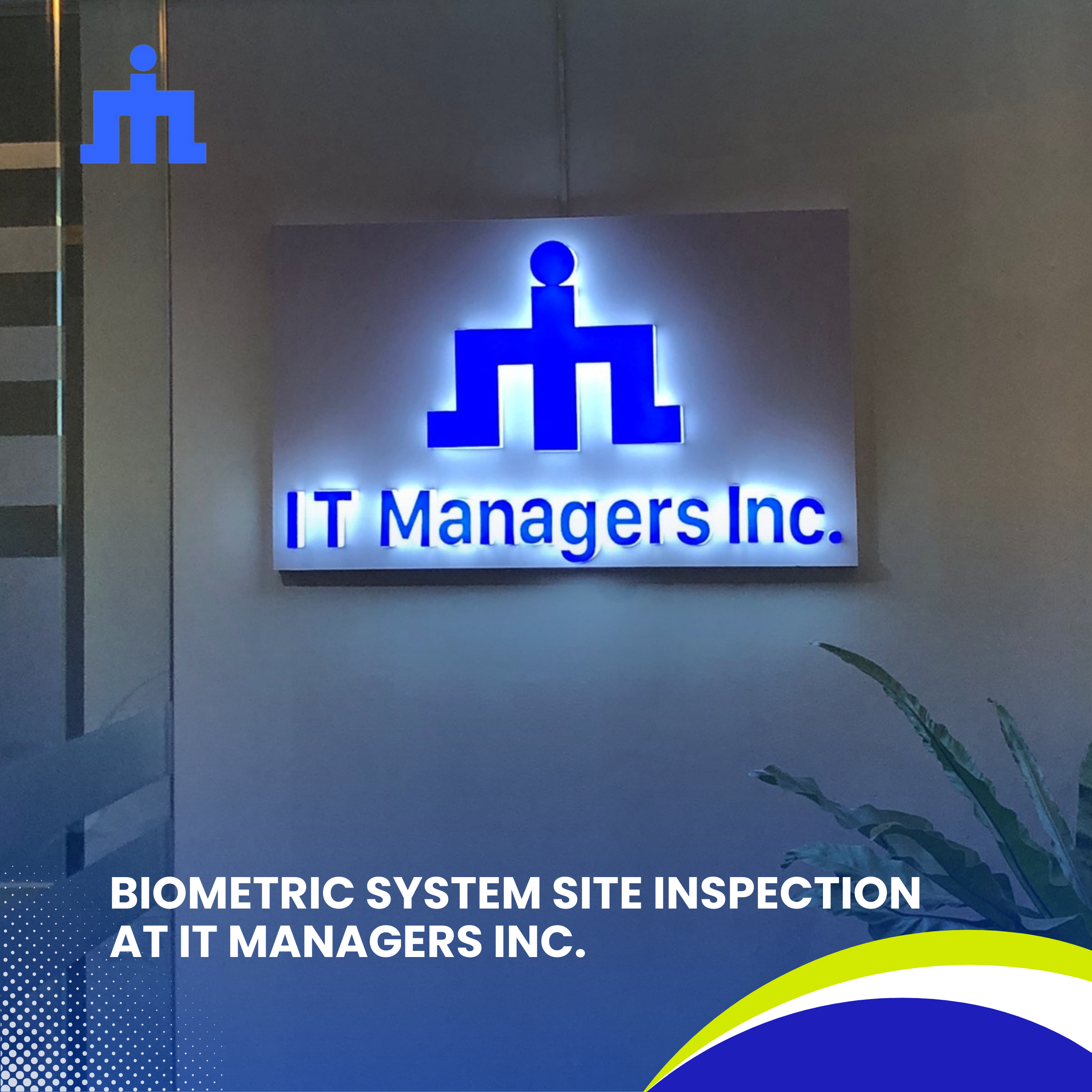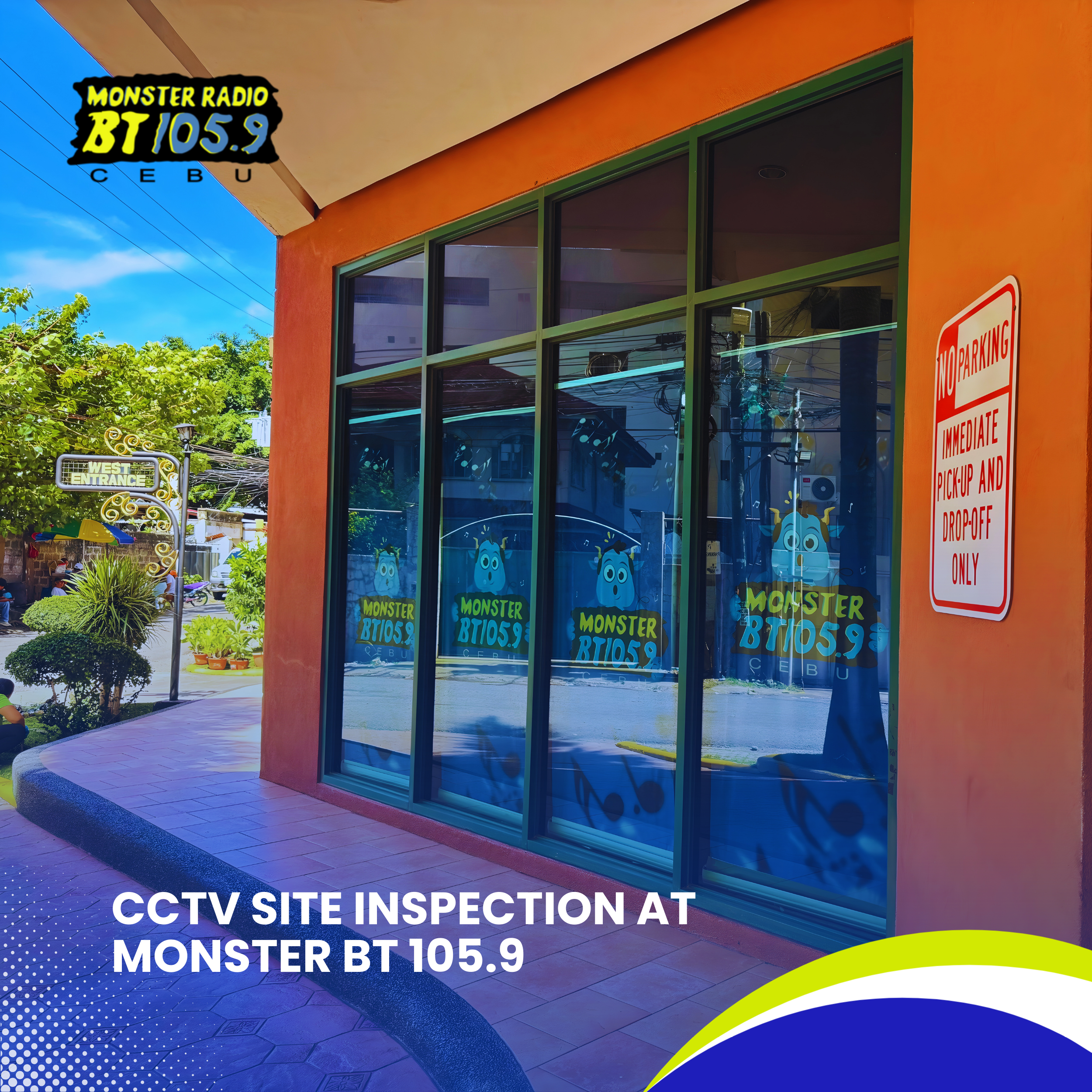Biometric System Site Inspection at IT Managers Inc. Introduction: Biometric System Site Inspection at IT Managers Inc. A biometric system site inspection was conducted by the InstallersPH IT Solutions team for IT …
Home Security 101: How CCTV Cameras Keep Your Property Safe?

In an era where security is paramount, homeowners are increasingly turning to advanced technology to safeguard their properties. One of the cornerstones of modern home security systems is Closed-Circuit Television (CCTV) cameras. These surveillance devices have evolved significantly over the years, offering an extra layer of protection and peace of mind. In this article, we will delve into the basics of home security and explore how CCTV cameras play a crucial role in keeping your property safe.
Home security is a top priority for homeowners, and for good reason. The sense of safety and peace within one’s home is irreplaceable. With the rise in property crimes and burglaries, investing in robust security measures has become essential. A comprehensive home security system not only protects against external threats but also provides a deterrent effect, dissuading potential intruders from attempting to breach your property.
CCTV cameras, or closed-circuit television cameras, are a key component of modern home security systems. Unlike traditional television broadcasts, CCTV cameras transmit signals to a specific set of monitors, providing a closed system of surveillance. These cameras come in various types, including dome cameras, bullet cameras, and PTZ (pan-tilt-zoom) cameras, each serving specific purposes in enhancing home security.
1. Deterrence
The presence of visible CCTV cameras acts as a powerful deterrent to potential intruders. Knowing that their actions are being recorded significantly reduces the likelihood of criminal activity on your property. In many cases, burglars will opt to target homes without visible security measures, making CCTV cameras an effective prevention tool.
2. Evidence in Legal Proceedings
In the unfortunate event of a break-in or trespassing, CCTV footage serves as valuable evidence in legal proceedings. The recorded video can aid law enforcement in identifying the perpetrators and increase the chances of apprehending them. Additionally, this evidence can be crucial in insurance claims and providing documentation for police investigations.
3. Remote Monitoring
Modern CCTV systems often come equipped with remote monitoring capabilities. Homeowners can access live footage and recordings from their cameras through smartphones or computers, providing real-time updates on their property’s security status. This feature is particularly beneficial for individuals who travel frequently or spend extended periods away from home.
4. 24/7 Surveillance
CCTV cameras ensure round-the-clock surveillance, offering a constant watchful eye on your property. This continuous monitoring is invaluable for detecting suspicious activity, even during the night or when the homeowners are away. Many CCTV systems incorporate infrared technology for clear footage in low-light conditions.
Installing CCTV cameras requires careful planning to maximize their effectiveness. Here are key considerations for proper installation:
1. Strategic Placement
Identify critical areas around your property that require surveillance, such as entry points, windows, and high-traffic zones. Strategic placement of cameras ensures comprehensive coverage, leaving no blind spots for potential intruders.
2. Visibility
While discretion may be desirable in some cases, visible cameras are more effective as deterrents. Ensure that at least some of your cameras are easily noticeable to discourage criminal activity before it happens.
3. Weather Resistance
Choose CCTV cameras that are weather-resistant to withstand the elements. Weatherproof cameras are essential for maintaining functionality in rain, snow, or extreme temperatures.
4. Professional Installation
For optimal performance, consider professional installation. Certified technicians can assess your property, recommend the ideal camera types, and ensure proper setup for reliable security.
In the age of smart homes, the integration of CCTV cameras with other smart devices enhances overall security and convenience. Many modern CCTV systems can be seamlessly integrated with smart home platforms, allowing homeowners to control and monitor their security system remotely. Integration with smart devices such as doorbell cameras, smart locks, and motion sensors creates a comprehensive security network that provides a holistic approach to home protection.
1. Smartphone Apps
Most contemporary CCTV systems come with dedicated smartphone apps that enable users to monitor their property in real-time. These apps often provide notifications for motion detection, allowing homeowners to stay informed about any suspicious activity, even when they are away from home. The ability to check in on your property at any time offers an unparalleled sense of control and security.
2. Automation and Alerts
Integrating CCTV cameras with smart home technology allows for automation and customized alerts. For example, the system can be programmed to send alerts to your phone when specific events occur, such as a door opening or motion detected in a restricted area. This level of customization ensures that you receive relevant information promptly, enhancing the overall effectiveness of your security measures.
3. Voice Control
With the rise of voice-activated virtual assistants, some CCTV systems now offer integration with platforms like Amazon Alexa or Google Assistant. Homeowners can use voice commands to check camera feeds on compatible devices, providing a hands-free and convenient way to stay updated on their property’s security status.
When choosing CCTV cameras for your home security system, several factors should be taken into account to ensure optimal performance and functionality.
1. Resolution
High-resolution cameras provide clearer and more detailed footage, making it easier to identify individuals and events. Opt for cameras with at least 1080p resolution for crisp images that capture essential details.
2. Field of View
The field of view (FOV) determines how much area a camera can cover. Depending on your property’s layout, choose cameras with appropriate FOV to minimize blind spots and maximize coverage.
3. Night Vision
Infrared (IR) or night vision capability is crucial for maintaining surveillance in low-light conditions. Ensure that your chosen CCTV cameras have effective night vision technology for 24/7 security.
4. Storage and Cloud Options
Consider the storage options available with the CCTV system. Many systems offer local storage through DVRs or NVRs, while others provide cloud storage solutions. Assess your needs and choose a system that aligns with your preferences for data storage.
5. Remote Access
Opt for CCTV systems that provide easy and secure remote access. This feature enables you to view live footage and recordings from anywhere with an internet connection, enhancing the flexibility and convenience of your home security system.
Ensuring the longevity and effectiveness of your CCTV system requires regular maintenance and upkeep. Consider the following tips:
1. Clean Lenses Regularly
Dust, dirt, and debris can accumulate on camera lenses, affecting image quality. Regularly clean the lenses to maintain clear and unobstructed views.
2. Check Connections
Periodically inspect cables and connections to ensure they are secure and free from damage. Loose connections or damaged cables can result in disruptions to the CCTV system.
3. Update Firmware
Manufacturers often release firmware updates to improve camera performance and address security vulnerabilities. Check for and install firmware updates regularly to keep your CCTV system up to date.
4. Test System Components
Conduct regular tests of the entire CCTV system, including cameras, monitors, and recording devices. Identify and address any issues promptly to maintain the system’s reliability.
As the saying goes, “prevention is better than cure,” and this holds true in the realm of home security. CCTV cameras are a pivotal element in safeguarding your property, offering both a visible deterrent to potential intruders and a means of gathering crucial evidence in case of security breaches. The investment in a reliable CCTV system is a proactive step towards securing your home and ensuring the safety of your loved ones. By understanding the importance of home security and the role of CCTV cameras, homeowners can make informed decisions to fortify their properties and enjoy the peace of mind that comes with a well-protected home.
Related Articles
CCTV Site Inspection at Monster BT 105.9. Introduction. On February 16, 2026 (Monday), the technical team from InstallersPH IT Solutions conducted a scheduled CCTV site inspection at Monster BT 105.9, situated in …
No CCTV, No Permit: What Businesses in Cebu Need to Know. Introduction. In 2026, business owners in Cebu are facing a growing and very important requirement: “No CCTV, No Permit.” This means …



